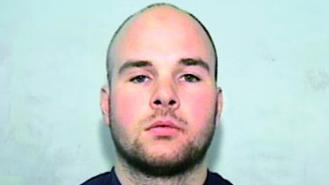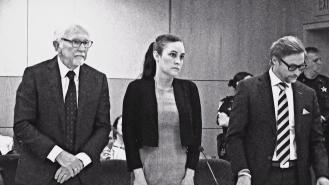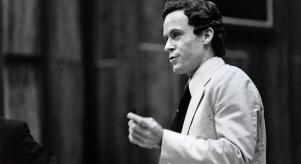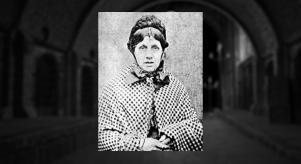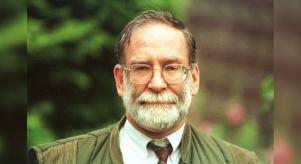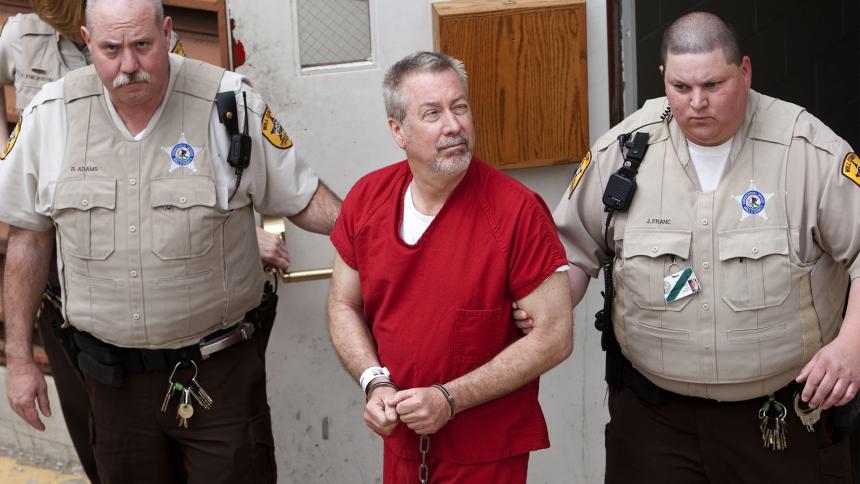
Drew Peterson: The killer cop who murdered his ex-wife
Drew Peterson was born in Bolingbrook, Illinois on 5th January 1954. He joined the U.S. Army before pursuing a career in law enforcement, serving as a police officer in his hometown and later rising to the rank of sergeant. Peterson married his high school sweetheart, Carol Brown, in 1974 and the couple had two sons together, Stephen and Eric. Just six years into their marriage, Carol filed for divorce after learning that Peterson was cheating on her. She later said: ‘I thought he always had respect for me, but I guess when you stray in a relationship, you don’t have respect for the person you were doing that to.’
Throughout their relationship, Peterson exhibited a persistent pattern of control, particularly in financial matters. During the divorce proceedings, Carol found herself unable to afford legal representation, leading to Peterson's attorney overseeing the process. Despite this disadvantage, Carol was granted full custody of their sons, along with $250 per month in child support from Peterson.
In 1982, two years after the divorce, Peterson entered a new relationship with Vicki Connolly, and the couple jointly operated a bar in the Chicago suburb of Romeoville. However, their partnership was marred by instances of abuse and coercive behaviour inflicted by Peterson, as reported by Vicki. She revealed that Peterson had even made threatening statements, claiming he could take her life and stage it to appear accidental. Disturbed by these revelations, Vicki confided in her police officer friends ‘so they would know that he said these things to me’.
Subsequently, Vicki initiated divorce proceedings, and by the finalised date of 18th February 1992, Peterson had already entered a new relationship with Kathleen Savio, an accountant. A mere three months later, Peterson and Kathleen tied the knot, welcoming two sons, Thomas and Kristopher, into their lives. However, after a decade of marriage and raising their children, the couple initiated divorce proceedings in early 2003.
Later that same year, Will County Judge Susan O’Leary officially dissolved their marriage, employing a ‘bifurcated’ approach that allowed them to divorce before settling the division of their shared assets. On 1st March 2004, Kathleen was found lifeless in an empty bathtub at her residence by a concerned neighbour. Her death occurred just before a scheduled court date to finalise the division of assets.
Despite the circumstances, South Police initially deemed Kathleen’s death non-suspicious, and a coroner’s jury determined it to be an accidental drowning, even though there was no water in the bathtub when her body was discovered. Strangely, her hair was wet, and her fingertips were wrinkled, indicating exposure to water.
During the jury deliberations, a state police officer, who happened to be part of the jury, vouched for Peterson's character, asserting personal knowledge that he would never harm his ex-wife. His assurance persisted despite evidence of Kathleen's injuries, including blunt force trauma and a lacerated scalp. The coroner's jury, however, attributed these injuries to an accidental fall that rendered her unconscious.
Meanwhile, Peterson had already moved on to a new relationship, this time with Stacy Cales, a young woman he had encountered when she was just 17. Approximately a year after Kathleen's death, a handwritten will surfaced in court. This document, witnessed by Bolingbrook police officer Alex Morelli and Crest Hill area developer Gary Marcolina, allocated nearly everything to Peterson, including multiple life insurance policies. Under Peterson’s control, Kathleen’s two sons received $1 million from a life insurance payout, while Peterson obtained proceeds from other insurance policies and profits from the sale of a bar and their home, collectively valued at more than $600,000.
Peterson and Stacy were married on 18th October 2003, and together, they had two children, Anthony and Lacy. On 28th October 2007, Stacy was reported missing after she failed to show up to help a family member paint a house. Police spokesman Ken Teppel announced that foul play wasn’t involved but said that since Stacy was married to a police officer, the case was being handled by State Police.
Peterson maintained that Stacy had left him, claiming she had called him on the night of her disappearance to announce she was leaving for another man and had abandoned her car at Clow International Airport. Detectives from the State Police grew suspicious of Peterson's account, especially upon discovering that he had not shown up for work on the night Stacy vanished. On 1st November, Will County State’s Attorney James Glasgow declared an investigation into the earlier death of Kathleen.
According to Kathleen’s family, they never believed that her death was accidental and always thought that Peterson was somehow involved. Her niece, Melissa Doman, commented to The Los Angeles Times: ‘It’s sad that it took Stacy going missing for anyone to look into what happened for my aunt. Now, we might get some answers.’
On 16th November 2007, Kathleen's remains were exhumed, and her cause of death was officially reclassified as homicide. Detectives intensified their probe, focusing on Peterson as the primary suspect in both Kathleen’s murder and Stacy’s disappearance. A pivotal revelation emerged from one of Peterson's associates, Rick Mims, who disclosed that he and Peterson had purchased three plastic containers in 2003.
Further complicating the narrative, Peterson's stepbrother, Thomas Morphey, revealed that he had assisted Peterson in moving a plastic container from his residence to his SUV on the day Stacy went missing. Morphey later confessed to the media that he had come to the realisation that the container likely held Stacy's remains, leading to profound emotional distress and a suicide attempt in the aftermath.
Despite the suspicions, detectives didn’t have enough evidence to arrest Peterson until 7th May 2009, when he was indicted for the murder of Kathleen.
He went on trial for the murder in 2012, but not before the Illinois State Legislature passed a new law known as Drew’s Law, which allowed prosecutors to present statements in trial made by unreliable witnesses if it could be proven that the defendant murdered the witness, that the statements are reliable, and that the interests of justice are best served by admitting the statements. The purpose was so that prosecutors could enter various statements into evidence in the upcoming trial.
The trial began on 31st July 2012 and featured compelling testimony about Peterson’s conduct within his marriages. Kathleen’s sister, Anna Doan, revealed that Kathleen had confided in her about Peterson's death threats before her body was discovered in the bathtub. Anna also testified that she witnessed Peterson cleaning the bathtub just one day after Kathleen's death. Lt. James Coughlin, a former colleague of Peterson, informed the jury that Peterson had once remarked to him, ‘my life would be easier [if Kathleen were dead]’. Jeff Pachter added to the prosecution's case by stating that Peterson had offered him $25,000 to hire someone to kill Kathleen and said that he would carry the secret to his grave if he did it.
Mary Parks, one of Kathleen’s friends, told the jury about a conversation she had with Kathleen around a year before she died. Kathleen had confided in her that Peterson had broken into her home, grabbed her by the throat, pinned her down and asked: ‘Why don’t you just die?’ As Kathleen was speaking with Mary, she unzipped her top and showed dark red bruises on her neck.
Ultimately, Peterson was convicted of Kathleen’s murder, with the jury highlighting hearsay evidence presented under Drew’s Law as the most compelling. This led to a 38-year prison sentence. However, Peterson's legal troubles persisted when, in 2015, he faced charges for attempting to orchestrate a hit on Prosecutor James Glasgow, the lead prosecutor in the murder trial. Peterson had sought to enlist a fellow inmate’s uncle for the murder. Prosecutors in the murder-for-hire case asserted that Peterson wanted James Glasgow dead to increase his chances of a successful conviction appeal.
On 31st May 2016, Peterson was found guilty of the murder-for-hire plot and sentenced to an additional 40 years in prison.
